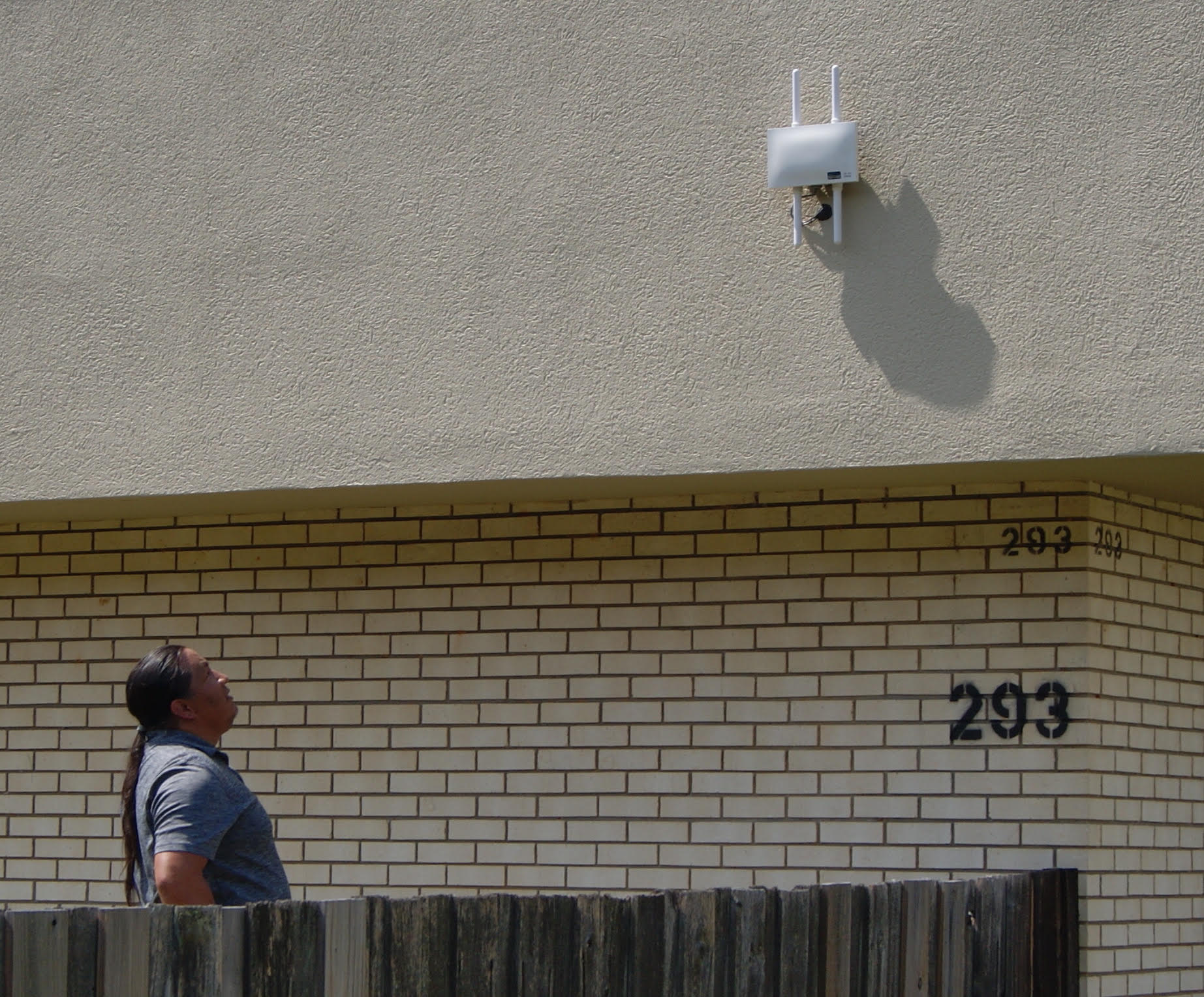
- Details
- By Native News Online Staff
CHOCTAW, Miss.—The Mississippi Band of Choctaw Indians said it will offer WiFi at all eight of its schools that are located on tribal lands. The Tribe utilized funds from the federal CARES Act funding to complete the project.
The tribe said it is setting up external hotspots at each of the tribal schools — six elementary, one middle and one high school — to provide Internet access to individuals inside the building or up to 400 yards away. The indoor-outdoor WiFi setup allows for extra flexibility for students and teachers, especially if the school district calls for distance learning this fall amid the COVID-19 pandemic.
"Because COVID-19, our plans for the fall are uncertain," David Germany, director of Choctaw Tribal Schools, said in a statement. "We are working hard to determine whether we can bring our students back to school physically. Either way, this Wi-Fi access is a positive step, because students can sync to the Internet from the parking lot if they need to. That will help those students who don't have broadband access at their homes."
Firewall protections are in place so that students can't connect to inappropriate sites, whether indoors or outdoors on school property, according to a statement.
"Our overriding commitment is to equip our students with the tools they need to succeed, and access to the Internet certainly is an important one," Sherry Tubby, assistant director of Choctaw Tribal Schools said in a statement. "We evaluated several options to find the most cost-effective and timely way to offer Wi-Fi access, and ultimately decided to install hotspots at each of our school facilities." She added, "The fast-track installation of the Wi-Fi network was coordinated by Elray King, Tribal Schools Network Administrator, who worked tirelessly to complete its implementation."
Choctaw Tribal schools are also working to provide all students with a digital device such as a laptop or iPad that they can use for homework or distance learning. School administrators are also training parents and students to use Google Classroom, which Tubby noted will be useful for in-person as well as distance learning.
More Stories Like This
Alaska Native Yale Student Named a Udall FellowAmerican Indian College Fund Launches “Make Native Voices Heard” Voting Campaign
Scathing Investigation Reveals Years of Ignored Sexual Assault, Mismanagement at Haskell Indian Nations University
UAA names Dr. Matt Calhoun as new executive director for Alaska Native Science & Engineering Program
American Indian College Fund Awards Law School Scholarship to Jade Araujo
These stories must be heard.
This May, we are highlighting our coverage of Indian boarding schools and their generational impact on Native families and Native communities. Giving survivors of boarding schools and their descendants the opportunity to share their stories is an important step toward healing — not just because they are speaking, but because they are being heard. Their stories must be heard. Help our efforts to make sure Native stories and Native voices are heard in 2024. Please consider a recurring donation to help fund our ongoing coverage of Indian boarding schools. Donate to Native News Online today and support independent Indigenous-centered journalism. Thank you.

